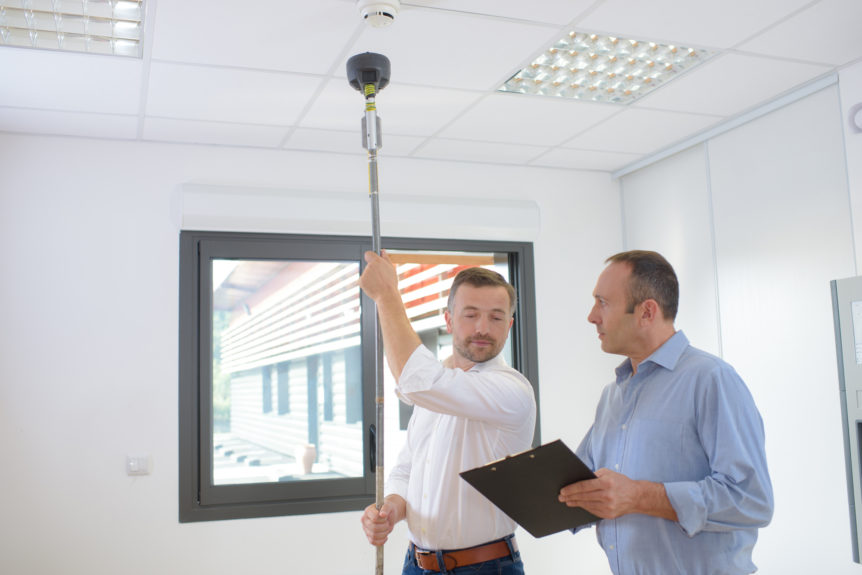Is it time for a fire alarm inspection?
You depend on your fire alarm system to provide the first line of defense in saving a building’s occupants from fire. In order to protect your employees, you need to make sure that yours is working properly.
If you decide that it’s time to have your system inspected, do you know what to expect during the process?
Keep reading to learn what happens during a fire alarm inspection.
Why is it Important?
A fire alarm inspection is important for several reasons, but of course, safety will always appear at the top of the list. Keep in mind, the more people that occupy your building or property on any given day, the more individuals there are that need protection, and the greater a reliance you need in your fire safety system. Your tenants, customers, and employees all need a fire notification system they can put their trust in.
This is because alarm systems’ performance can worsen as time goes on. Parts can get old and degrade, which can compromise the entire system, and the safety of the building. Regular inspections help to catch issues that, if otherwise left untreated, could lead to an inadvertent, catastrophic accident should a fire start.
Aside from their safety-related purposes, inspections will also help you comply with fire and safety codes, which if left unmet could potentially render high fines.
There are other financial benefits, too. You can have lower insurance premiums and reduced fines in the case of a false alarm if you engage in proper, regular inspections, as well as a raised resale value of your building.
How Do We Get Started?
1. Schedule an Appointment for Minimum Impact
When you contact us to schedule an inspection, the first thing we do is work with you on scheduling a time that will have the least amount of impact on the tenants or employees in the building. For example, an inspection of a high school would be best suited for the summer months.
2. Inform the Authorities
Next, before we head to your site at the scheduled time, we always inform the proper authorities that a fire alarm inspection and testing will happen at your address.
This will save the fire department from wasting resources after being flagged by a triggered fire alarm during the testing process, preventing your local firefighters from hurrying to your property to put out an imaginary fire when there’s no real need.
3. Complete the Fire Alarm Inspection Itself
Our technicians are certified by NICET and will perform inspections according to the standards set by the National Fire Protection Association.
The technician on site will make a list of all of the alarm systems on your property and test them one by one. He or she will also check the panels to see if the components are working properly in accordance with local fire codes and the NFPA’s standards. Please note that the technician will be knowledgeable of city and/or county-specific local fire codes before he or she facilitates your property’s inspection.
The job of the technician is to test the functionality of the system as a whole, which includes checking all panels and pull stations throughout the building to verify they remain in working order.
When testing has been completed, you’ll receive an in-depth report that will fully detail which systems were inspected and if anything was present that now needs to be addressed.
We work with you to ensure that your systems are compliant. That will entail having your systems checked on a quarterly basis and annual testing. Our technicians will keep detailed and accurate records of the inspection.
Schedule a Fire Alarm Inspection Today
Remember that an inspection of your fire alarm system is a straightforward process and can be specifically scheduled to cause the least amount of distraction to your property’s daily activities.
In addition to our inspection services, the team at Crisp-LaDew Fire Protection also offers 24-hour emergency service and fire alarm monitoring.
Don’t hesitate to contact us today to schedule an inspection of your building’s fire alarm system.

